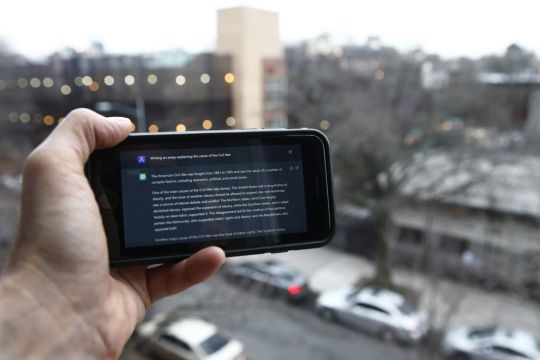Microsoft has said it is making a “multi-year, multibillion-dollar investment” in the artificial intelligence (AI) start-up OpenAI – the maker of ChatGPT and other tools that can write readable text and generate new images.
The tech giant described its new agreement as the third stage of a growing partnership with the San Francisco-based OpenAI that began with a $1 billion investment in 2019.
Microsoft did not disclose the cash amount for its latest investment.
OpenAI’s free writing tool ChatGPT launched on November 30th, and has brought public attention to the possibilities of new advances in AI.
We are happy to announce the next phase of our partnership with Microsoft: https://t.co/mqx3ZJNGfL
Advertisement— OpenAI (@OpenAI) January 23, 2023
It is part of a new generation of AI systems that can converse, generate readable text on demand and even produce novel images and video based on what they have learned from a vast database of digital books, online writings and other media.
OpenAI started out as a non-profit artificial intelligence research company when it launched in December 2015.
With Tesla chief executive Elon Musk as its co-chair and among its early investors, the organisation’s stated aims were to “advance digital intelligence in the way that is most likely to benefit humanity as a whole, unconstrained by a need to generate financial return”.
In this next phase of our partnership with @OpenAI, we will deliver the best AI infrastructure, models, and toolchain for customers to safely and responsibly build and run their applications on Azure. https://t.co/hX48N3vPv8
Advertisement— Satya Nadella (@satyanadella) January 23, 2023
That changed in 2018 when it incorporated a for-profit business Open AI LP, and shifted nearly all its staff into the business, not long after releasing its first generation of the GPT model for generating human-like paragraphs of readable text.
Mr Musk also left its board in 2018.
OpenAI is also the creator of the DALL-E tool for generating new images.
Microsoft said its strengthened partnership can help “to accelerate AI breakthroughs to ensure these benefits are broadly shared with the world”.







